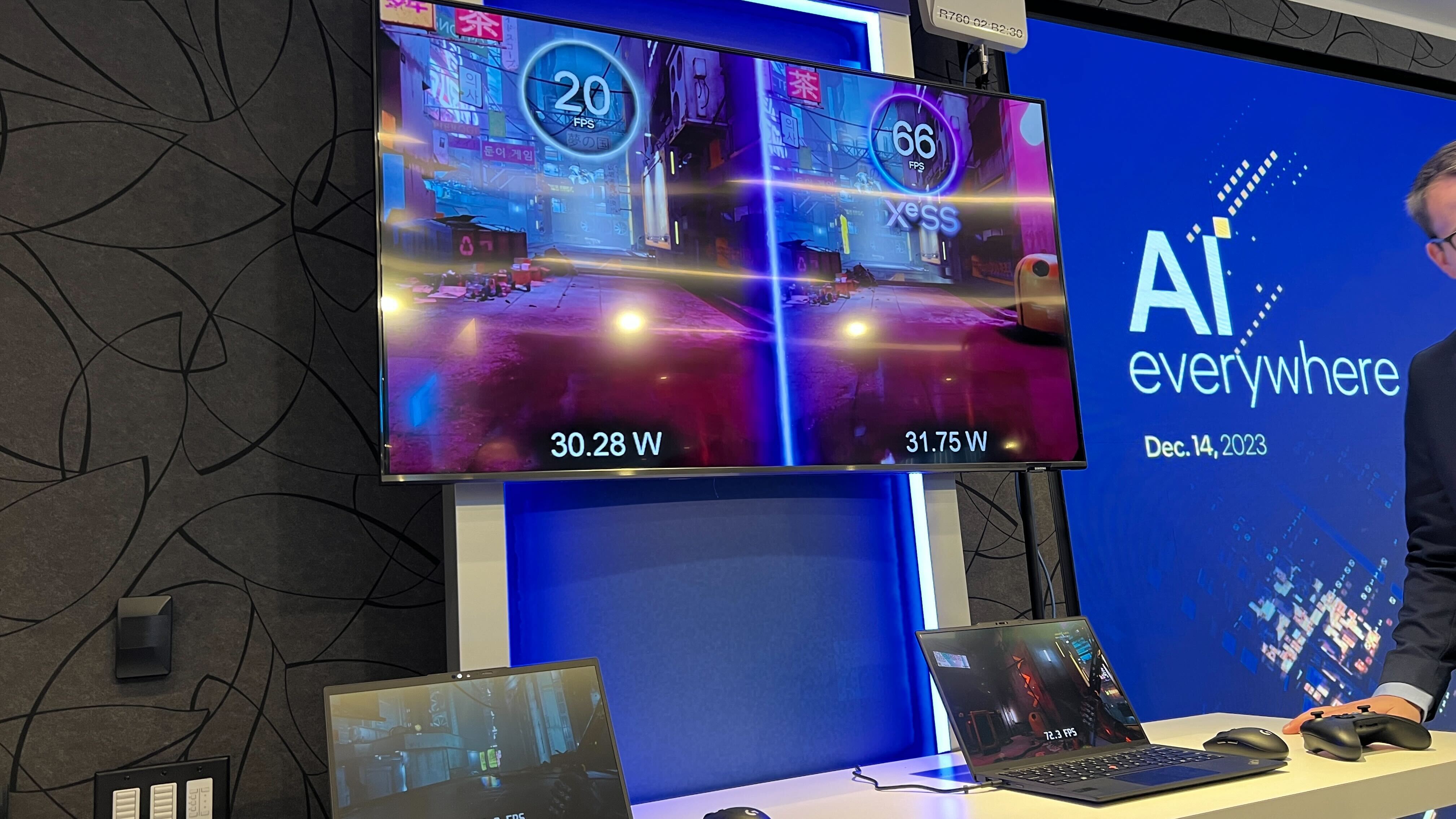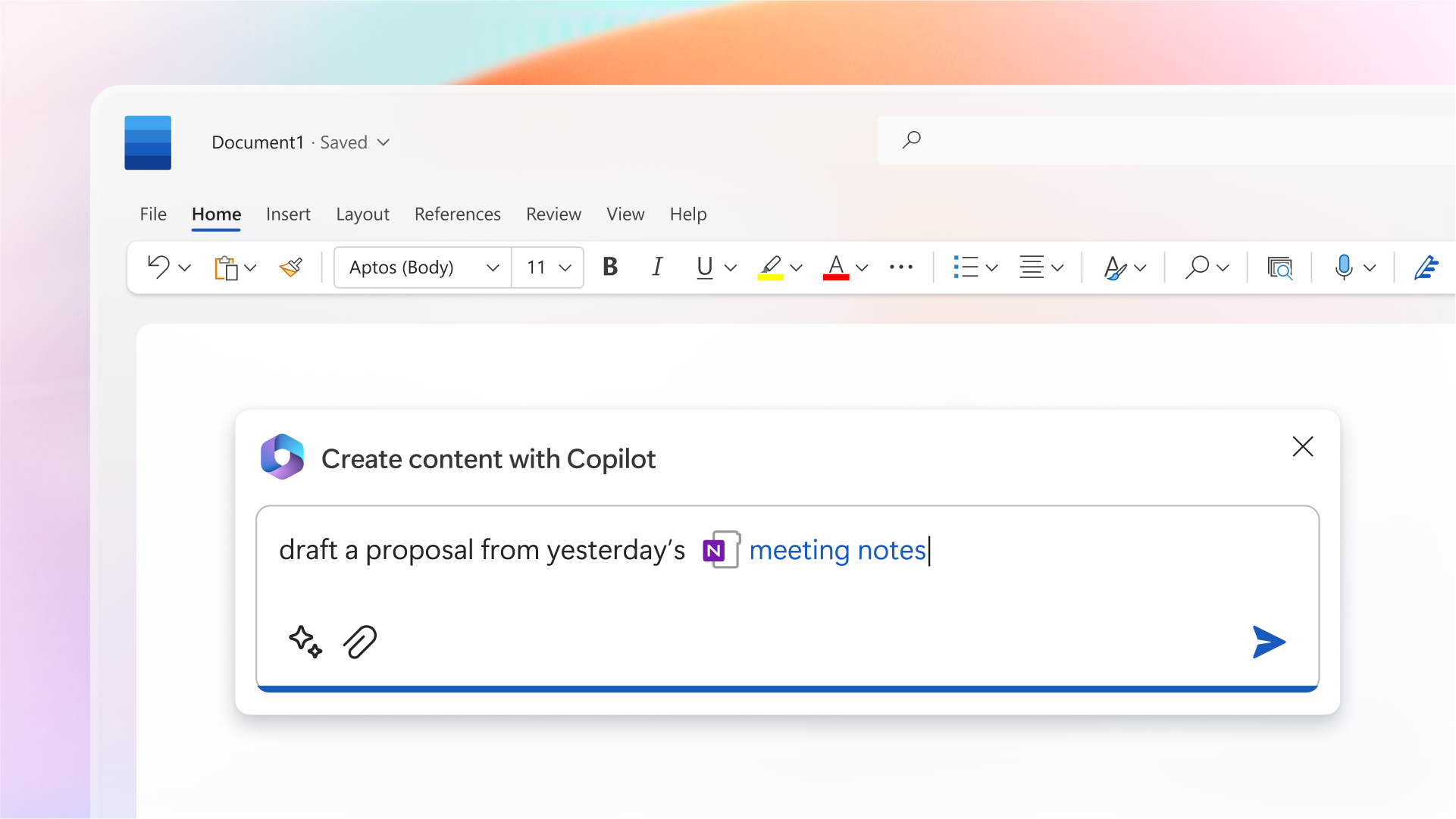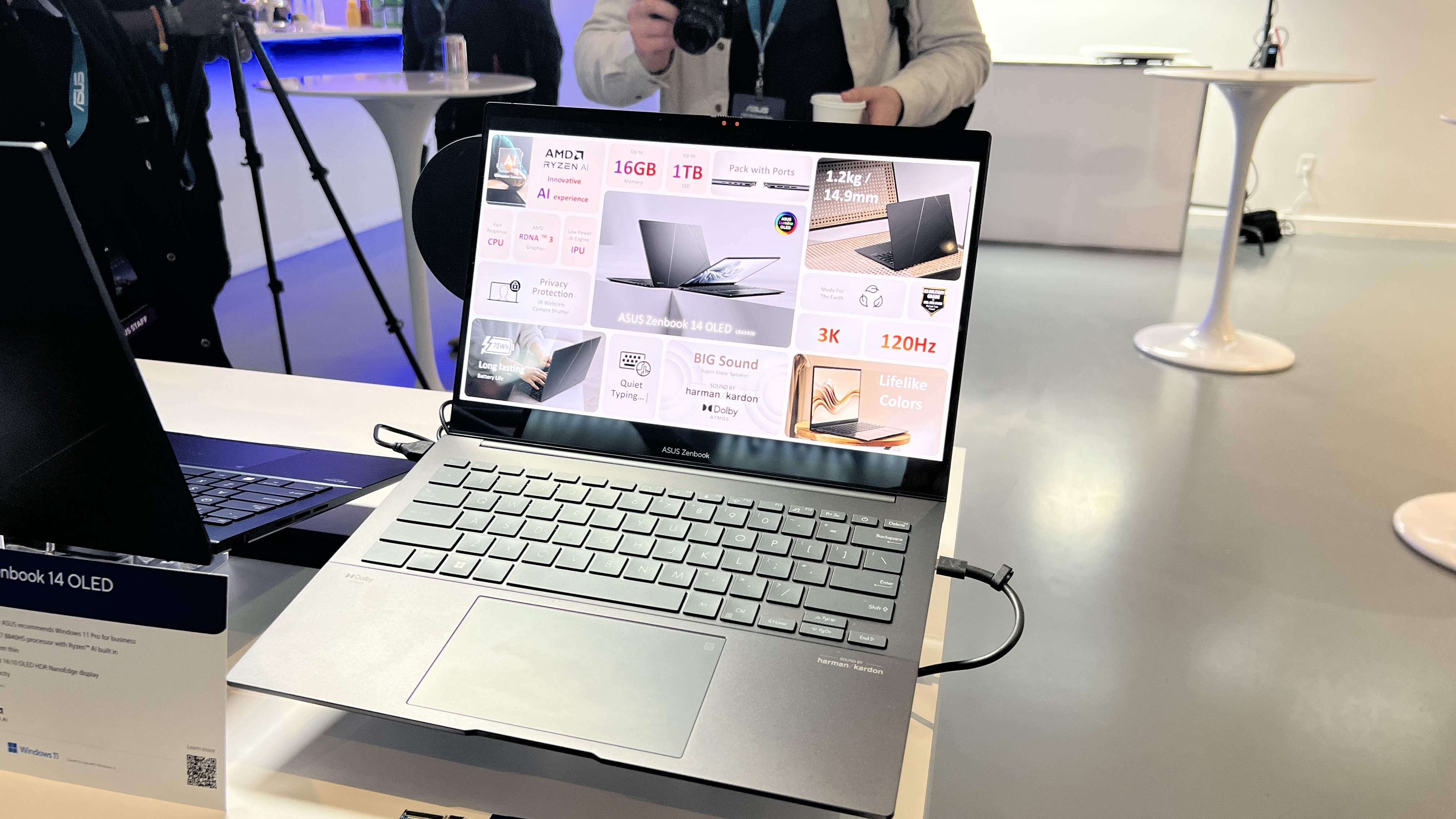
At the tail end of 2023, Intel launched its Meteor Lake laptop chips, the first Intel CPUs to ship with a “chiplet” architecture that includes a discrete NPU (Neural Processing Unit). These are the first chips to bear the new Intel Core Ultra branding, and you're likely to see them powering some of the best laptops of the year.
These new Intel Core Ultra chips are a big deal because the NPU is designed to excel at the kind of calculations required to perform the tasks we typically call “AI” these days — blurring your background on video calls, generating images from text and that sort of thing. Apple’s MacBooks have had dedicated NPUs built into them ever since the debut of the MacBook Air M1, when they started shipping with Apple silicon inside, and now many of the best Windows laptops of 2024 are likely to have them as well.
Intel and PC vendors seem eager to sell you on these new “AI laptops” packing Meteor Lake chips, and we’ve seen ads for them hitting our inboxes and cropping up on retailers like Newegg all year. But now that we’ve tested a few of the first Meteor Lake laptops to hit the market, I have to say I’m a little underwhelmed.
The Acer Swift Go 14 I reviewed last month is the first AI laptop I’ve spent serious time with, and while it’s perfectly serviceable, the performance, battery life and AI features left a little something to be desired. Others on the team have now had time to go hands-on with these new Meteor Lake laptops as well, and some are finding that using an Intel Core Ultra laptop for anything other than AI is a bit meh.

So with most of the year still ahead of us and lots of PC makers still with new hardware to show off at Mobile World Congress, I thought it might be interesting to ask our crack team of computing experts: What would it take to sell you on an AI laptop in 2024? Do you think they’re worth the hype? And what would make you want to own one yourself?
Not enough software needs an NPU — yet

The biggest problem facing AI laptops today is a lack of available software. There are a multitude of AI models you can run locally and some tools like Gimp and Audacity are experimenting with local AI but they almost universally use the GPU, not the dedicated NPUs of the new AI chips.
Apple has been making AI laptops for nearly half a decade thanks to the M-series chips, but even in the Apple space there is a scarcity of software that utilizes the true power of an NPU.
That is likely to change as Microsoft further embeds Copilot in its products and for security reasons other developers utilize onboard AI — but its a slow change and one we likely won't see come to fruition this side of 2025.
— Ryan Morrison
AI laptops need to prove their value

I review computers for a living but I struggle to explain how “AI” laptops can benefit everyday users. When reviewing the Alienware m16 R2, which has a Meteor Lake CPU, I pretty much glossed over the notebook’s AI capabilities since there currently isn’t a lot of software taking advantage of the processor’s NPU. Yes, it’s nice knowing that Adobe Premiere Pro and Filmora leverage the NPU, but those aren’t apps I often use.
I’ve spoken to many laptop manufacturers, along with folks from Microsoft and Intel. All of them boast about the upcoming benefits of AI computers, but I still have yet to get an answer to my simple question: what can these laptops do for us now? Maybe this question is unfair given how we’re just seeing the first crop of these devices. Still, if you’re trying to sell me an AI laptop, it would be good to know how it can benefit me over other laptops. Making apps I seldom use run a little faster isn’t enticing enough.
Given how the tech industry has yet to convince me why we need AI laptops, it’s hard for me to say what would get me to buy one of these machines. I’ve used programs like ChatGPT and MidJourney. While getting thorough answers to questions and creating detailed images can be amusing, it also feels gimmicky. Regarding laptop-specific features like blurring your background during video calls, there are already plenty of non-AI machines that can do that. Also, I’m not yet at the point where I feel comfortable using AI to help me write or edit my stories.

At the risk of sounding like a complete pessimist, there isn’t much that’s selling me on AI laptops. Again, I review laptops for a living and keep my ear to the ground regarding AI developments. However, I’ve found very little to convince me that these AI machines (I really don’t like calling them that) are the next big leap in computing. But who knows, maybe I’m being like former Microsoft CEO Steve Ballmer when he laughed off the original iPhone. I hope that’s true and that AI will positively change our lives. Until then, I’ll save my money and wait until AI laptops or AI computers prove they’re worthwhile.
- Tony Polanco
AI could one day be like browsers or search engines

There’s certainly quite a lot of hype around AI laptops at the moment, but I’ve personally yet to see how the addition of NPUs could benefit the average consumer. Those with more specialized workloads may be able to benefit from them right now but I don’t think AI laptops will really take off until companies like Microsoft and Intel can find a way to justify their existence for ordinary users.
Not everyone is going to need or even want to be able to run AI models locally on their own, but one thing that they might be interested in are more advanced virtual assistants. For instance, being able to run Windows Copilot locally could be helpful for everyday tasks and will also help clear up any privacy concerns people have about the data they share with AI tools online.
I’m in a bit of an awkward position though, as I use Windows PCs both personally and professionally, but prefer Google over Microsoft when it comes to software. I’m a big fan of Google Assistant and have used both Google Bard and Google Gemini to answer the kinds of questions Google Search struggles with.
However, with AI laptops running Windows, you’re going to be pushed to use Microsoft Copilot as your default AI tool, whereas on Chromebooks you’ll have access to Google’s AI tools first but won't be able to install and run programs locally the way you do on Windows, due to how Chrome OS was designed with a cloud-first mindset. As such, my ideal AI laptop would run Windows with a choice of which AI tool is integrated into the operating system, kind of like how you can pick your default search engine on a web browser.
- Anthony Spadafora
This isn't worth a potential Skynet situation

Call me a luddite, but can’t a human do it instead?
Though I’m not totally disinterested in artificial intelligence, no part of me is desperate for a primarily AI-led laptop. Maybe that’s hypocritical considering I value certain aspects of AI. My inner gamer wants to move on from hideously expensive hardware solutions to a certain extent, while I also love Nvidia DLSS, which increasingly makes use of AI.
A laptop that’s all AI all the time, though? My wallet is yet to be convinced. Although that’s probably because I’ve just watched Terminator 2: Judgment Day one too many times. It’s a firm “no” from me on the Skynet laptop for the time being.
- Dave Meikleham
Outlook
It's a lack of clear use cases or 'killer apps' that seems to be undercutting the appeal of AI laptops."
In the end, it's a lack of clear use cases or "killer apps" that seems to be undercutting the appeal of AI laptops in these first few months. And that's pretty reasonable, because despite Intel making a clear case for what these Meteor Lake laptops can do we just haven't seen the ones we have tested do much to wow us—yet.
And maybe they never will. The new NPUs on these chips are optimized for low-power workloads like blurring the background on your video calls, so they can take over those workloads from the CPU and GPU to both free them up for other tasks and complete the work more efficiently. So ideally your new Meteor Lake laptop will make you look better on video calls than your old notebook, while draining less power on the call, because the NPU is there to assist.
That may not be a killer app, but it's a killer value add and exactly the sort of thing (better video quality, better battery life) that's helped the best MacBooks stand out from Windows laptops ever since they started shipping with their own NPUs onboard.

So while I'm clearly not alone in pining for some cool uses of onboard AI processing, I've yet to see or use anything that makes me want to rush out and buy an AI laptop for myself. The prospect of being able to run something like Windows Copilot completely locally and entirely on my laptop (so I never have to access the Internet) could be cool, if only because I could try talking to my PC about what's on my PC and what to do with it—imagine being able to ask your laptop questions about how much you made in a given year by having it look through your tax documents, or have it group family photos by subject and arrange them in some fun layouts.
These are exactly the sorts of things I'd like an AI helper to assist me with, but I'd never trust one that sent my data out on the Internet. Hopefully throughout 2024 we'll see software vendors get more ambitious about building tools that take advantage of the NPUs in these new AI laptops.







